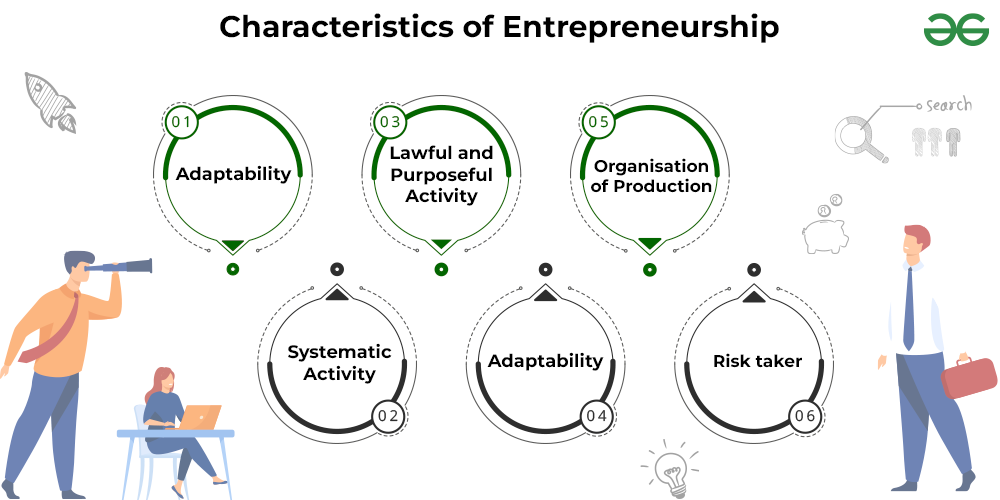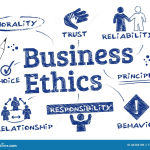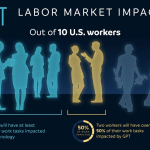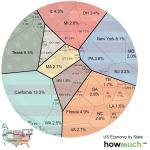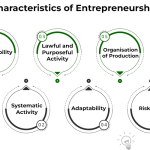Entrepreneurialism, a dynamic force reshaping America’s work culture, invites individuals to take charge of their own professional destinies. In his thought-provoking book “Make Your Own Job,” Erik Baker examines how this movement fosters a new mindset toward self-employment, urging creative and ambitious souls to build their identities through innovative ventures. The rise of freelance work and other entrepreneurial endeavors reflects a shift in the work and economy landscape, highlighting the allure of autonomy in the face of traditional employment models. With more Americans opting out of conventional career paths, the concept of entrepreneurialism encapsulates a broad range of opportunities, from sole proprietorships to gig economy roles. This evolution reveals both the enticing potential and the inherent anxieties surrounding self-made success in today’s demanding environment.
The concept of entrepreneurship extends beyond just starting businesses; it represents a cultural shift that emphasizes individual initiative and adaptability in various work environments. Terms like self-employment and freelance work embody this spirit of creating one’s own path, mirroring the ideals outlined in Erik Baker’s insights on how Americans engage with their professional lives. As traditional job markets evolve, the need for self-sufficiency and innovation drives many to explore alternative career options, leading to what can be described as a new work ethic based on personal fulfillment and resourcefulness. This entrepreneurial mindset contrasts sharply with previous generations’ views on employment, highlighting the growing importance of taking ownership of one’s career journey. By understanding these developments, we can better appreciate the complexities of the modern work and economy landscape.
The Evolution of Work in the Economy
The landscape of work in the economy has undergone significant transformations, particularly in response to technological advancements and changing social ideals. One pivotal moment was during the turn of the 20th century when the mass industrialization that characterized the previous century began to wane. As Erik Baker notes in “Make Your Own Job,” structural unemployment surged as factories began to rely more heavily on automated processes, further diminishing the demand for traditional labor. This shift not only altered the economic fabric but also prompted a reevaluation of the work ethic prevalent at the time, leading many to consider alternative paths like self-employment and freelance work.
As traditional employment opportunities dwindled, more individuals started to embrace the concept of entrepreneurialism, turning hobbies and skills into viable careers. This shift was fueled by a growing belief that work should not only be about earning a paycheck but should also fulfill personal ambition and creativity. The modern economy now reflects this ethos—a significant number of people being self-employed, working as freelancers, or taking on gigs, all of which allow for greater flexibility and self-determination. This evolution reinforces the notion that work is no longer just a means to an end but a platform for self-expression and achieving personal goals.
Understanding Entrepreneurialism in Today’s Society
Entrepreneurialism today embodies an expansive set of ideals that go beyond mere business ownership. It includes various forms of self-employment, showcasing individuals leveraging personal skills to carve out careers that resonate with their passions. As Erik Baker illuminates in his examination of the current work landscape, roles such as freelancers, social media influencers, and ‘sidepreneurs’ illustrate how the traditional concept of what it means to be an entrepreneur has evolved. In a gig economy, many employees view their roles as entrepreneurial ventures, making decisions that align closely with their personal brand and market potential.
This evolution also speaks to larger shifts within society, where job security is often at odds with personal satisfaction. As more people embrace entrepreneurialism, they adopt a mindset that values resilience and adaptability. However, Baker warns that the pressure to constantly innovate and remain ahead can lead to anxiety and feelings of inadequacy. The challenge now lies in balancing the rewarding aspects of self-employment and entrepreneurship with the inherent risks and uncertainties that often accompany such lifestyles. This ongoing tension highlights a key aspect of the modern economy—while entrepreneurial paths can be fulfilling, they are also fraught with the potential for unpredictability.
Freelance Work: A New Paradigm in Employment
Freelance work represents one of the most significant shifts in how people engage with their professions. As traditional corporate structures give way to more fluid employment arrangements, freelancers now play a crucial role in numerous industries, from creative fields to technical sectors. Baker’s reflections on the rise of freelance opportunities illuminate a landscape where individuals can negotiate their terms, diversify their projects, and cultivate their unique careers without being tethered to a single employer. This independence appeals to those seeking work-life balance or a creative outlet that aligns with their personal values.
However, the rise of freelance work isn’t without challenges. While it offers flexibility and control, freelancers often face issues like income instability and the lack of benefits typically associated with full-time employment. The idea of perpetual hustle can lead to burnout and a constant state of anxiety about securing the next project. This dual-edged sword of freelancing emphasizes the need for support systems and resources to help independent workers manage their careers stability. As the working economy continues to evolve, the conversation about how to ensure the sustainability of freelance careers becomes increasingly relevant.
The Impact of Technology on Self-Employment
The advent of technology has been transformative in redefining self-employment, providing new avenues for individuals to market themselves, network, and conduct business. Digital platforms have emerged as powerful tools for freelancers and entrepreneurs, enabling them to reach a global audience and connect with clients beyond geographical constraints. Baker’s insights highlight how this technological revolution has democratized access to self-employment opportunities, allowing anyone with skills or knowledge to become a service provider. From online marketplaces to social media advertising, technology has fundamentally reshaped how we approach work.
Yet, this rapid technological progress can also contribute to the anxiety associated with self-employment. With the pressure to keep pace with innovation, many may feel compelled to constantly upskill or pivot their offerings to remain relevant. Moreover, the online space is often saturated, leading to fierce competition and necessitating continuous self-promotion. As Baker points out, the stress of needing to innovate and adapt can be overwhelming for many in the gig economy. This evolving relationship with technology thus underscores a broader societal question: how can individuals leverage these tools while preserving their mental well-being?
Navigating Entrepreneurial Challenges and Rewards
The path of entrepreneurialism is laden with both challenges and rewards. Many individuals are drawn to self-employment by the promise of autonomy and creativity. However, Erik Baker’s work illustrates that this path is not without discomfort. Entrepreneurs and freelancers often face significant pressure, balancing the need to be innovative and resilient in a fast-paced environment. Experiencing setbacks is part of the journey, yet the fear of failure can be an ever-looming presence, making it essential for aspiring entrepreneurs to cultivate a resilient mindset.
Despite these challenges, the rewards of entrepreneurship can be profound. The freedom to define one’s work environment, craft unique offerings, and engage with clients directly offers a satisfying sense of ownership over one’s career. Furthermore, the community of entrepreneurs often fosters collaboration and innovation, which can lead to unexpected opportunities. Embracing the entrepreneurial lifestyle means recognizing both the inherent risks and the potential for substantial personal achievement that comes from building something remarkable from the ground up.
The Rise of the Gig Economy
The gig economy has surged in prominence, reshaping the traditional understanding of employment. Many individuals are no longer confined to the traditional 9-to-5 job structure; instead, they opt for project-based or temporary work that offers both flexibility and variety. Baker’s observations illustrate how this shift toward gig work is both a response to economic necessity and a desire for greater control over one’s professional destiny. As a result, the gig economy has become a critical aspect of the contemporary work environment.
However, it’s vital to acknowledge the complexities that come with this flexibility. While gig work can provide opportunities, it also presents precariousness in terms of income stability and benefits. Freelancers and gig workers frequently navigate unpredictable earnings and lack health insurance or retirement benefits that are typically afforded to full-time employees. As more people turn to gig work as a primary source of income, discussions about rights, protections, and the future of work become paramount in ensuring that this new economic model supports those who live it.
Entrepreneurial Mindsets: Shifting Personal Perspectives on Work
An entrepreneurial mindset is characterized by a unique set of values that emphasize creativity, resilience, and adaptability. This mindset transcends conventional practices of work and fosters a more profound connection to one’s personal and professional endeavors. Through Erik Baker’s insights, we see how individuals are encouraged to think of themselves as agents of change within their fields, reshaping their work experiences by applying their skills more creatively. This perspective reshapes not just how work is approached but also how success is defined.
Cultivating such a mindset can empower individuals to overcome challenges, transforming obstacles into opportunities for growth. By embracing failure as a stepping stone rather than a setback, many find that they develop a greater capacity for innovation and problem-solving. This emerging perspective on work not only enhances individual career trajectories but also contributes to a dynamic economy where entrepreneurial spirits thrive. As the nature of work continues to evolve, fostering an entrepreneurial mindset may become essential for sustained personal and professional development.
The Role of Education in Fostering Entrepreneurial Skills
Education plays a pivotal role in equipping individuals with the skills necessary to thrive in an entrepreneurial landscape. Institutions are increasingly recognizing the importance of teaching not just traditional business principles but also critical thinking, creativity, and adaptability—all crucial elements of entrepreneurial success. Baker’s observations emphasize how today’s students must be prepared for a work environment that demands innovation and self-sufficiency. As such, educational programs are evolving to encourage an entrepreneurial spirit among learners, cultivating a workforce that is adept at navigating the complexities of modern employment.
This shift in educational focus is crucial in preparing future generations for the realities of the gig economy and self-employment. With an emphasis on real-world applications and experiential learning, educational institutions can foster an environment where students are not only consumers of knowledge but also creators of opportunities. By integrating entrepreneurial thinking across diverse curricula, schools are nurturing a new generation of self-starters who are capable of tackling challenges head-on, ultimately contributing to a more dynamic and resilient economy.
The Future of Work: Blending Traditional and Novel Approaches
The future of work is poised to blend traditional employment structures with the novel approaches brought forth by entrepreneurialism and the gig economy. As more individuals chart their own career paths, organizations will need to adapt to this shifting paradigm by embracing a more flexible workforce. Erik Baker highlights how businesses that recognize and leverage the unique strengths of freelancers and self-employed professionals stand to benefit from increased innovation and creativity. Moreover, hybrid models of employment are gaining traction, allowing companies to incorporate both full-time employees and gig workers to achieve their objectives.
This future is characterized by a symbiotic relationship between traditional employment and freelance work, leading to a more diverse and agile labor market. As companies adjust to these changes, the challenge will be to ensure that all workers are afforded protections and opportunities to succeed, regardless of their employment status. Policies and support systems must evolve alongside the workforce to foster an inclusive economic environment in which both traditional and entrepreneurial pathways can coexist healthily.
Frequently Asked Questions
What are the key principles of entrepreneurialism according to Erik Baker in ‘Make Your Own Job’?
Erik Baker emphasizes that entrepreneurialism is characterized by a shift from traditional job security to self-employment and freelance work. Key principles include the application of unique skills with ambition, the inspiration of others in a team dynamic, and the embracing of risk in personal and economic endeavors.
How has entrepreneurialism changed the perception of work and economy in America?
Entrepreneurialism has transformed the American view of work from a focus on job stability to one that embraces self-employment and innovative career paths. This shift encourages individuals to create opportunities for themselves, reflecting a deeper connection between personal fulfillment and economic engagement.
What role does freelance work play in the current entrepreneurial landscape?
Freelance work has become a vital aspect of entrepreneurialism, allowing individuals the flexibility to leverage their skills in diverse markets. It serves as an avenue for self-employment and promotes a culture of innovation and adaptability in the workforce.
What historical events influenced the rise of entrepreneurialism in the United States?
The end of the 19th-century industrialization and subsequent technological unemployment spurred the rise of entrepreneurialism. During the Great Depression, individuals sought alternative job opportunities through freelance work and creating small businesses, fostering a long-lasting entrepreneurial spirit.
How does Erik Baker relate the concept of ‘Make Your Own Job’ to modern entrepreneurialism?
Baker links ‘Make Your Own Job’ to modern entrepreneurialism by highlighting how individuals have increasingly adopted an entrepreneurial mindset. This idea encourages self-creation of job roles and emphasizes the importance of unique skills and creativity in adapting to contemporary economic challenges.
Why might entrepreneurialism lead to anxiety according to Erik Baker?
Baker suggests that the perpetual state of risk associated with entrepreneurialism can create anxiety. The pressure to continually innovate and avoid failure makes it difficult for individuals to relax, as the stakes are often linked to personal identity and economic survival.
In what ways has the definition of entrepreneurialism expanded over time?
The definition of entrepreneurialism has expanded to include various roles such as solopreneurs, intrapreneurs, and sidepreneurs. This broadening reflects a cultural shift where nearly anyone can identify as an entrepreneur, highlighting the diverse forms that self-employment and innovative work can take.
What are the impacts of self-help literature on the entrepreneurial mindset?
Self-help literature, like Napoleon Hill’s ‘Think and Grow Rich’, has had a profound impact on fostering the entrepreneurial mindset. It encourages individuals to view work as a calling and to cultivate specialized skills, paving the way for a culture that values personal initiative and entrepreneurship.
| Key Points |
|---|
| The concept of entrepreneurialism has evolved, encompassing various roles beyond traditional business founders, such as ride-share drivers and influencers. |
| Erik Baker’s work, ‘Make Your Own Job’, explores how this shift has impacted American attitudes towards work, moving from a focus on industriousness to personal ambition. |
| Baker traces the roots of entrepreneurialism back to the industrialization era, highlighting responses to technological unemployment. |
| During economic stress, attitudes toward work shifted, with individuals seeking to create their own job security and opportunities. |
| Self-help literature has played a significant role in promoting entrepreneurialism as a vehicle for personal fulfillment. |
| The allure of entrepreneurialism persists today, fueled by fears of job loss and the rise of freelance work. |
| Despite its empowering narrative, there is an underlying anxiety associated with the constant pressure to succeed as an entrepreneur. |
Summary
Entrepreneurialism has reshaped the landscape of work in America, encouraging individuals to adopt innovative approaches in their careers and lives. As explored in Erik Baker’s ‘Make Your Own Job’, this transformation reflects a cultural shift towards autonomy and ambition. However, the relentless pursuit of self-made success can also lead to pervasive stress and anxiety, highlighting the complex relationship between personal aspirations and societal expectations in the modern economy.
